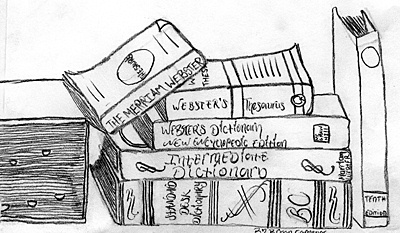All Nonfiction
- Bullying
- Books
- Academic
- Author Interviews
- Celebrity interviews
- College Articles
- College Essays
- Educator of the Year
- Heroes
- Interviews
- Memoir
- Personal Experience
- Sports
- Travel & Culture
All Opinions
- Bullying
- Current Events / Politics
- Discrimination
- Drugs / Alcohol / Smoking
- Entertainment / Celebrities
- Environment
- Love / Relationships
- Movies / Music / TV
- Pop Culture / Trends
- School / College
- Social Issues / Civics
- Spirituality / Religion
- Sports / Hobbies
All Hot Topics
- Bullying
- Community Service
- Environment
- Health
- Letters to the Editor
- Pride & Prejudice
- What Matters
- Back
Summer Guide
- Program Links
- Program Reviews
- Back
College Guide
- College Links
- College Reviews
- College Essays
- College Articles
- Back
Plagiarism: The Root, The Weed, The Problem
Aesop and his fables are moral stories; each of them reveals an inner belief, maxim, or mantra in ourselves that is portrayed by his eloquent words, painted scenes, and realistic events. My personal favorite is the story of two cats, one a hunter, and the other a pampered pet. The hunter cat is well trained and assists the master to catch food, the other lazes about the house and has no hunting ability. The moral of that story, ultimately, is that children are not to blame for the faults of their parents. While this is not some avenue of escape justifying every juvenile delinquent on the loose, perhaps conservative critics should step back and wonder why there are juvenile delinquents in the first place.
The quintessential embodiment of American life is a mere mirage of well educated, happy students, in a clean high school where there are no problems, and high GPA’s. In a time where 4.0’s and 800’s on SAT’s means college, which means making over $30,000 per year, which means college for your children and a middle class, relatively enjoyable life, education is the fundamental step. Students today are pushed even harder than in the wake of the launching Sputnik and society places a premium on a 4.0 GPA and test scores. While I do not condone the students cheating, I can certainly understand, from a psychological standpoint, why so many did it.
One teacher that stood up for strict cheating regulations was Cristina Pelton, who attempted to fail half her biology class that was caught cheating. However, with so many cheaters, one must find the root of a societal wrong. The poor, stand-ins for excuses such as low moral values, and lack of religion are not the cause for a large portion of perfectly normal students plagiarizing. A recent study of 12th grade students revealed the shocking truth; about 90% had cheated in some way in the past year. What is the cause for this moral dilemma? The root of the problem is not with miscreant students, they are the problem, but not the cause. The roots trace back to colleges and boards of education with their high standards playing a major role, instead of the standby “peer pressure theory.”
The societal bias that plagues many schools is that if a student fails a class, that student may be working at McDonald’s for an extremely long period of time. This sort of pressure is widespread through the schools. While many may argue that students all have equal footing in education, the fact is that some students have a small advantage, enough for them to stand back and cluck their tongues at the unfortunate souls of society. Cristina Pelton also shares this view, enough for her to hack at the weeds of plagiarism, but too shortsighted to spot the roots beneath the surface. Perhaps if educational values changed in the future, where creativity truly was “more important than knowledge,” where rote memorization paled next to paramount innovation and originality, we would have none, or far fewer plagiarizers.

Similar Articles
JOIN THE DISCUSSION
This article has 0 comments.
